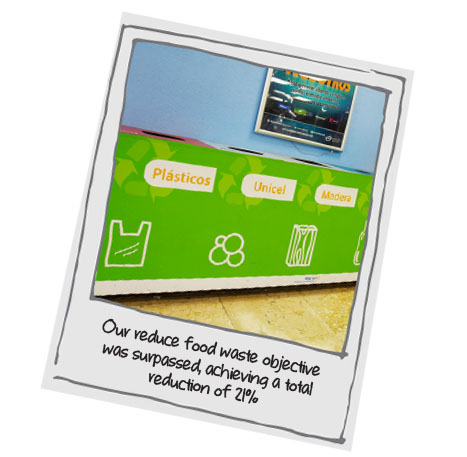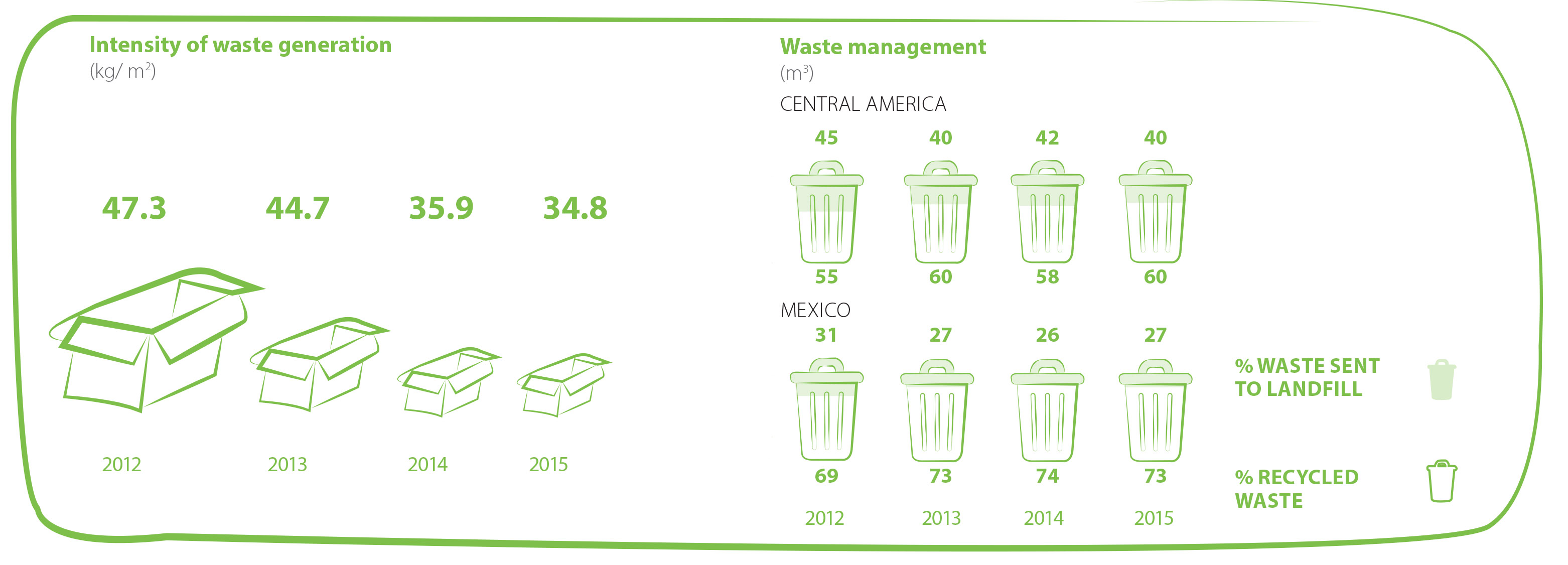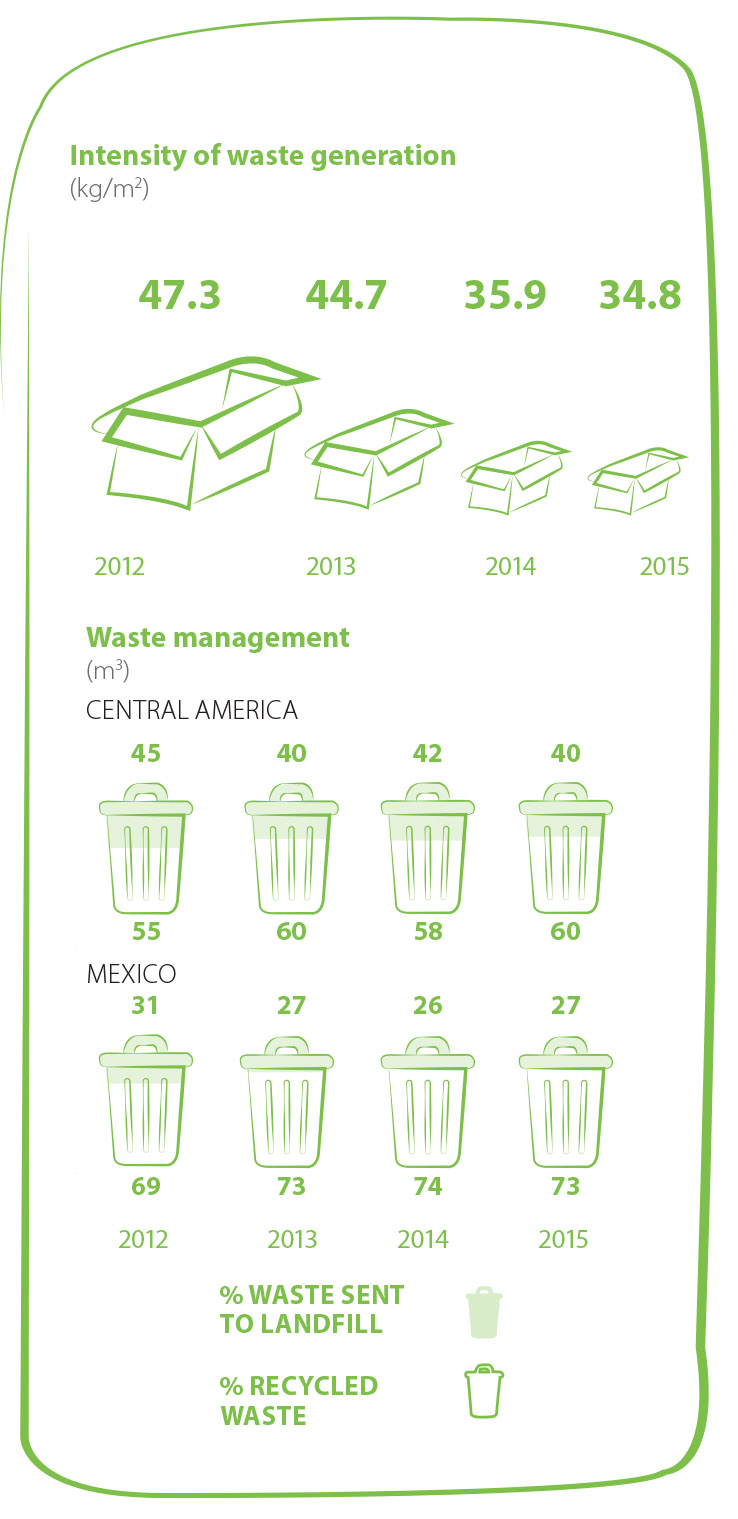WASTES
Our zero waste objective represents actions conducted during the year in waste management in our operation.
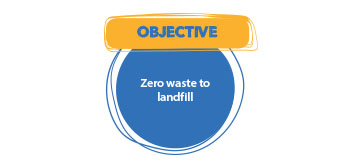
In total, we generated 355,944 tons of wastes in Mexico, of which 121,609 tons are solid urban waste, 234,284 tons of specially handled waste, and 51 tons of hazardous waste. Waste treatment methods are determined by existing infrastructure in each country and the potential for recycling. Recovered waste which has value is sent for recycling.
Composting is determined according to available infrastructure. Waste which cannot be recycled, reused, or composted is sent for final disposal in sites authorized for solid urban or hazardous wastes. We generated 118 tons of hazardous waste in 2015, representing 29% less than 2014 in the region. G4-EN23, EN25

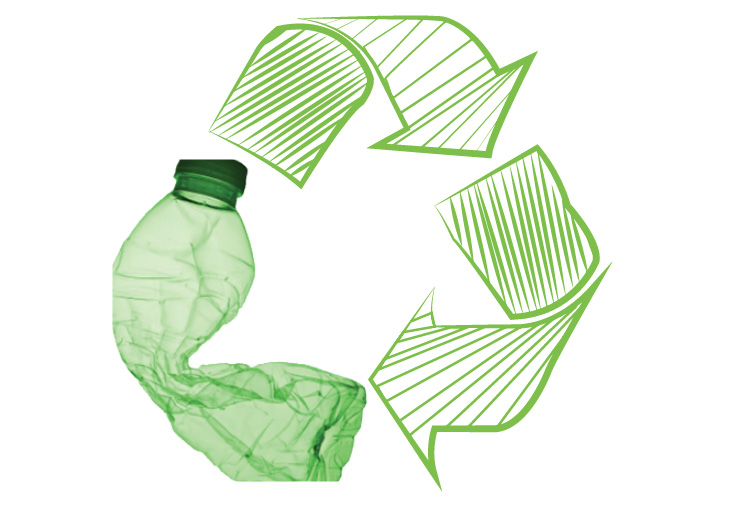


This year we changed the way in which our accomplishment of zero waste is measured; we included wastes that were not measurable in the past due to mixed contents. By broadening the waste base, our accomplishment is 73%, which is lower than that reported for previous years. In 2014 we reported 74% progress, but we had not considered this fraction of waste.
Our objective for Mexico was to reduce food waste by 15% for 2015; based on stores for 2011 this was surpassed, achieving a total reduction of 21%, which is equal to 3,248 tons. This was possible through a series of actions from a Freshness Committee that considered improvements in logistics, the monitoring of the cold chain during deliveries to stores, best practices in stores, adjustments to orders, and greater involvement of store associates in reducing shrink in perishable products.
With this in mind, we once again launched the Reduce, Recycle, and Win campaign, whose purpose is to make associates aware of best practices they can implement in their units, thereby increasing the recovery of recyclable materials and reducing the number of perishable items that end up being thrown away.
These practices allow us to free up 1,710,202 m3 of sanitary landfill through the recovery of solid waste that can be recycled in the region.
In 2015, there were 25 reported cases of chemical spills in Central America. The causes were 18 cases of LP gas leakage; 3 cases of small liquid combustible spills; one case of fryer oil spill; two cases of spillage of wastewater; and one case of dust emission. G4-EN24
